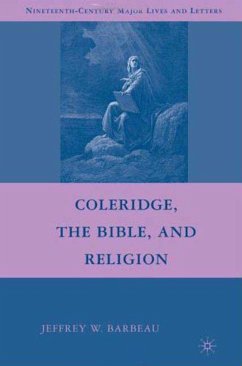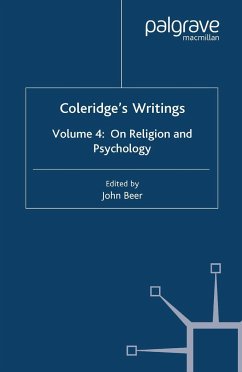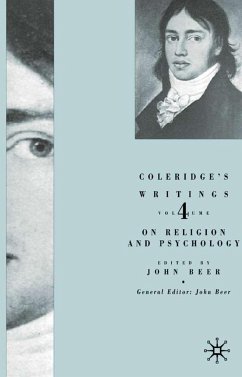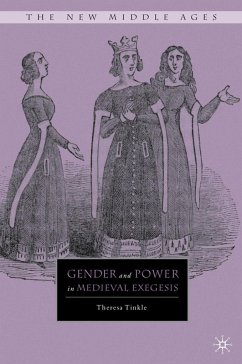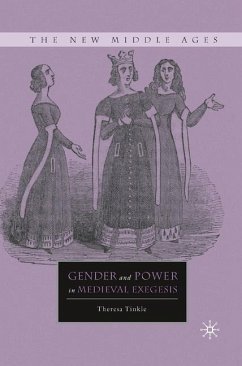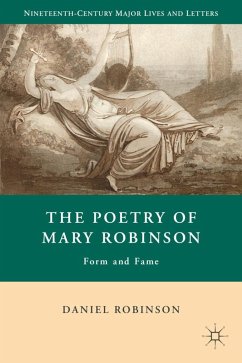
Coleridge, the Bible, and Religion
Versandkostenfrei!
Versandfertig in 6-10 Tagen
38,99 €
inkl. MwSt.
Weitere Ausgaben:

PAYBACK Punkte
19 °P sammeln!
Barbeau reconstructs the system of religion that Coleridge develops in Confessions of an Inquiring Spirit (1840). Coleridge's late system links four sources of divinity the Bible, the traditions of the church, the interior work of the Spirit, and the inspired preacher to Christ, the Word. In thousands of marginalia and private notebook entries, Coleridge challenges traditional views of the formation and inspiration of the Bible, clarifies the role of the church in biblical interpretation, and elucidates the relationship between the objective and subjective sources of revelation. In late writin...
Barbeau reconstructs the system of religion that Coleridge develops in Confessions of an Inquiring Spirit (1840). Coleridge's late system links four sources of divinity the Bible, the traditions of the church, the interior work of the Spirit, and the inspired preacher to Christ, the Word. In thousands of marginalia and private notebook entries, Coleridge challenges traditional views of the formation and inspiration of the Bible, clarifies the role of the church in biblical interpretation, and elucidates the relationship between the objective and subjective sources of revelation. In late writings that develop a robust system of religion, Coleridge conveys his commitment to biblical wisdom.





